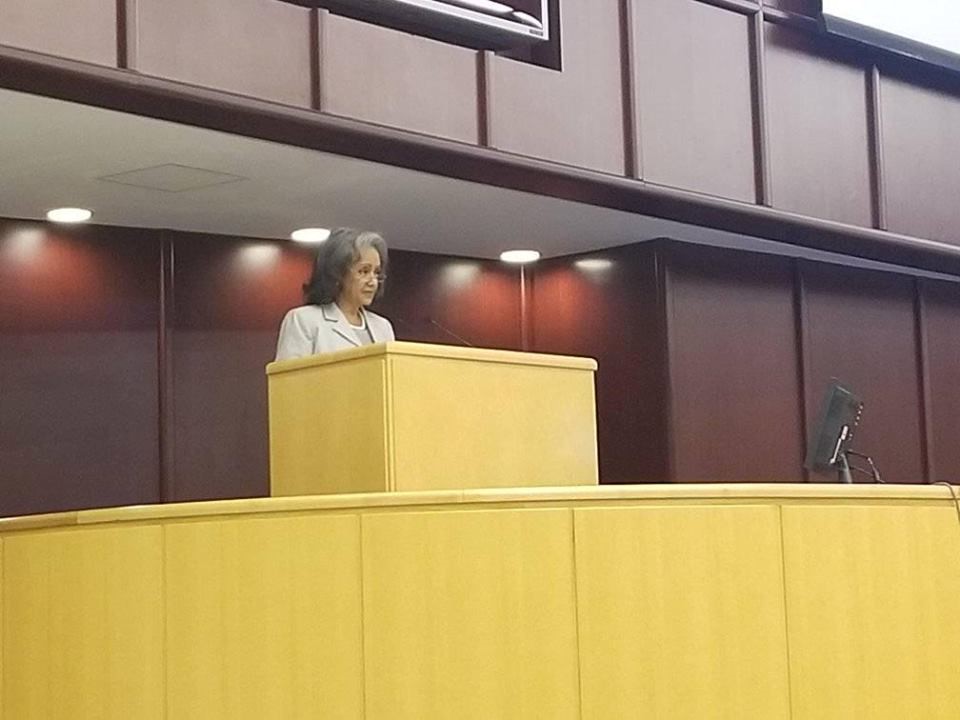A forum on the role of higher education institutions play in advancing gender equality and female empowerment

“Change is sweeping Africa.
Systemic barriers to gender equity are falling and a growing number of women leaders are reshaping the continent. Across the continent, women are increasingly challenging traditional norms by claiming positions of power and influence in our public arenas.”
– President of Ethiopia Sahle-Work Zewde, in a March 7 Financial Times op-ed
By Ethiopia Abebe, Director, IIE Ethiopia
Ethiopia marked a significant milestone for female leadership on the African continent when the nation elected its first female president in 2018. Promising to lift other women up and challenge discrimination, President Sahle-Work Zewde made a commitment to advance gender equality, girls’ education and female empowerment when she was appointed to the presidency.
IIE joins her in championing this important cause through our work with the Higher Education Readiness program in Ethiopia, in addition to other initiatives to educate and empower women and girls. Edith Cecil, IIE Senior Vice President, Government Programs; Susan Silveus, IIE Regional Director for the Middle East & Africa; and I were honored to meet with the president at the presidential palace in January to discuss IIE’s work advancing educational opportunities for girls.
At the president’s request, I facilitated a forum on “Safe and Inclusive Universities,” to examine how higher education institutions in Ethiopia must find solutions to make their universities safer and more inclusive for female students, teachers, students with disabilities, and the university community at large.
The forum took place at the United Nations Economic Commission for Africa headquarters in Addis Ababa on February 21. In total 200 participants attended the forum, including 42 government university presidents, gender office directorates from each university, female students, female teachers, and female teachers’ association representative from each university in Ethiopia, along with experts from the Ministry of Science and Higher Education.
President Sahle-Work Zewde; Dr. Hirut W/Mariam, Minister of Science and Higher Education; and Yalem Tsegay, Minister of Women, Children and Youth, delivered opening remarks. Participants discussed current challenges they face and possible solutions to make Ethiopia’s universities safer and more inclusive.

ON THE WAY FORWARD
Gender equality and representation at universities are inextricably linked with the social issues that impact the lives and opportunities of women. Many participants commented on the need to work with our high schools to ensure that more high achieving female students and entry of female students interested in STEM disciplines go on to university. University women made up only 30 percent of all tertiary students in 2014, according to the UNESCO Institute for Statistics.
Collaboration within and outside universities is essential. Students, teachers, administrative and academic staff need to work together, and university leadership should invest in supporting this collaboration. This work also needs to be done in collaboration with gender offices and other stakeholders active in the communities surrounding universities. Universities are not islands and they have a massive potential to impact and serve their communities. When they can connect with their surrounding communities the social change we seek will be sustainable.
When thinking outside the box and questioning the status quo, the university leadership and community need to ask:
- Why do we still not have a single female president at any university in Ethiopia, private or public?
- Why must female students contend with sexual harassment from their teachers?
- Why has it proven to be difficult to prioritize and budget for gender in the national budget for universities?
ADDITIONAL RECOMMENDATIONS
- Attitudinal change is the key area of intervention. University leaders and the community at large need a shift in mindset when it comes to gender equality.
- Address structural and administrative limitations and obstacles some are in the policies. Some are in the administrative culture. We need to have a sense of urgency and address these issues so that we can get to solving problems.
- Empower women directorates and women & youth directorates. These vital organizations need to be empowered and supported to serve the entire university community, not just students. There are a few proven solutions pioneered at some of our institutions and we need to recognize and share these resources by creating forums for learning.
- Consider gender representation and the work around gender equality in national university rankings.
- Make confronting gender-based violence a priority. Preventative measures must be taken to make universities a safe space for female students.
In her closing remarks at the forum, President Sahle-Work Zewde emphasized the need for urgent intervention to support gender equality at all Ethiopian universities. Supporting female professors’ progress to leadership positions is a government priority and universities should take responsibility to make this happen. The president said that together with MoSHE she will follow up on the progress of each universities soon.
She called on each university to conduct a similar workshop in their respective campuses and come up with a tangible action plan and budget, and indicated that government will take full responsibility to revise some policies and procedures as well as will support the universities when they need any support.
We look forward to advancing new educational opportunities for women and girls in Ethiopia.